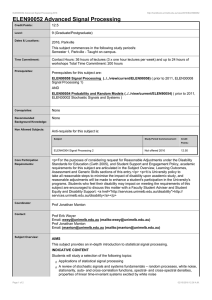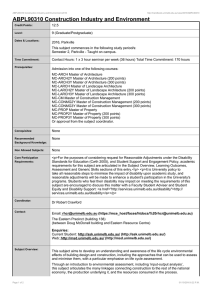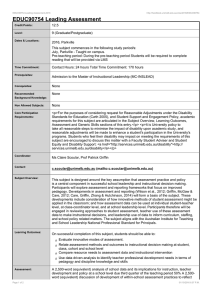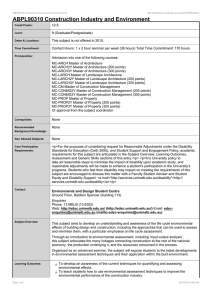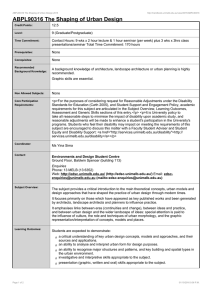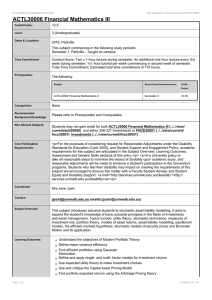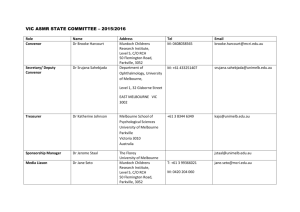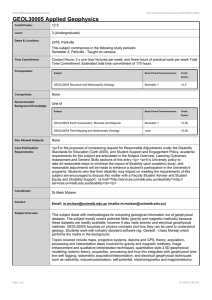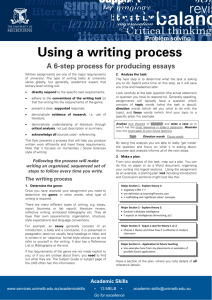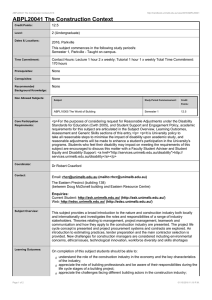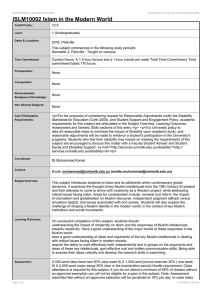ABPL90027 Life Cycle Analysis and Sustainability
advertisement
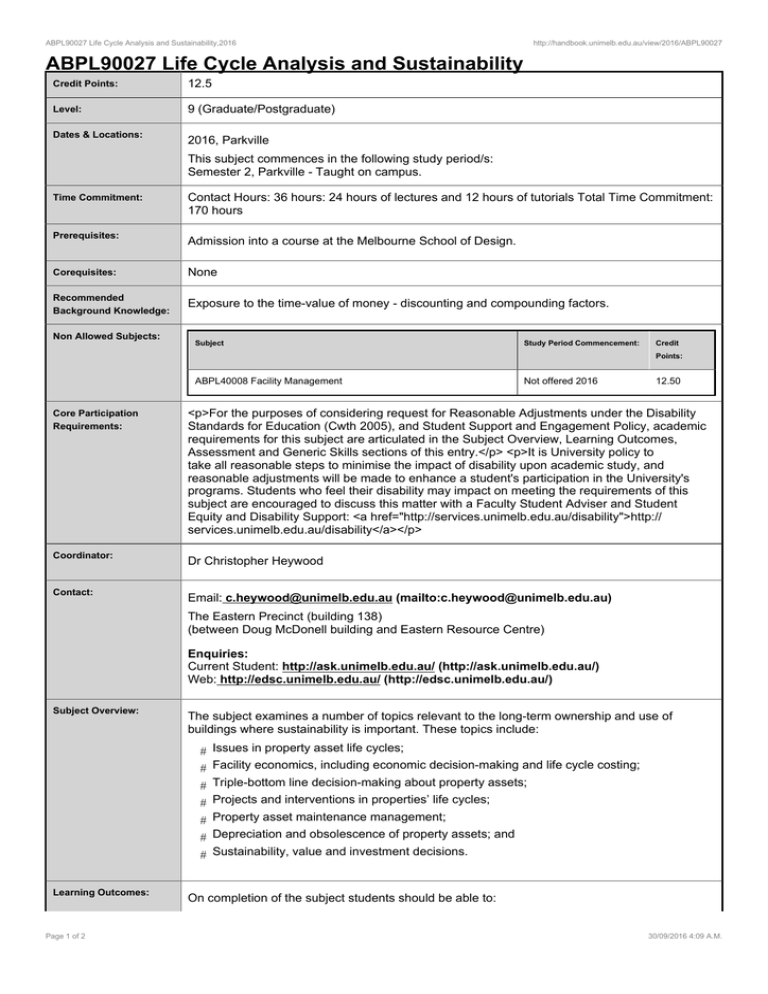
ABPL90027 Life Cycle Analysis and Sustainability,2016 http://handbook.unimelb.edu.au/view/2016/ABPL90027 ABPL90027 Life Cycle Analysis and Sustainability Credit Points: 12.5 Level: 9 (Graduate/Postgraduate) Dates & Locations: 2016, Parkville This subject commences in the following study period/s: Semester 2, Parkville - Taught on campus. Time Commitment: Prerequisites: Contact Hours: 36 hours: 24 hours of lectures and 12 hours of tutorials Total Time Commitment: 170 hours Admission into a course at the Melbourne School of Design. Corequisites: None Recommended Background Knowledge: Exposure to the time-value of money - discounting and compounding factors. Non Allowed Subjects: Subject Study Period Commencement: Credit Points: ABPL40008 Facility Management Core Participation Requirements: Coordinator: Contact: Not offered 2016 12.50 <p>For the purposes of considering request for Reasonable Adjustments under the Disability Standards for Education (Cwth 2005), and Student Support and Engagement Policy, academic requirements for this subject are articulated in the Subject Overview, Learning Outcomes, Assessment and Generic Skills sections of this entry.</p> <p>It is University policy to take all reasonable steps to minimise the impact of disability upon academic study, and reasonable adjustments will be made to enhance a student's participation in the University's programs. Students who feel their disability may impact on meeting the requirements of this subject are encouraged to discuss this matter with a Faculty Student Adviser and Student Equity and Disability Support: <a href="http://services.unimelb.edu.au/disability">http:// services.unimelb.edu.au/disability</a></p> Dr Christopher Heywood Email: c.heywood@unimelb.edu.au (mailto:c.heywood@unimelb.edu.au) The Eastern Precinct (building 138) (between Doug McDonell building and Eastern Resource Centre) Enquiries: Current Student: http://ask.unimelb.edu.au/ (http://ask.unimelb.edu.au/) Web: http://edsc.unimelb.edu.au/ (http://edsc.unimelb.edu.au/) Subject Overview: The subject examines a number of topics relevant to the long-term ownership and use of buildings where sustainability is important. These topics include: # Issues in property asset life cycles; # Facility economics, including economic decision-making and life cycle costing; # Triple-bottom line decision-making about property assets; # Projects and interventions in properties’ life cycles; # Property asset maintenance management; # Depreciation and obsolescence of property assets; and # Sustainability, value and investment decisions. Learning Outcomes: Page 1 of 2 On completion of the subject students should be able to: 30/09/2016 4:09 A.M. ABPL90027 Life Cycle Analysis and Sustainability,2016 http://handbook.unimelb.edu.au/view/2016/ABPL90027 # Place property ownership in the contexts of property’s life cycle, investment, design, construction and sustainability; # Analyse the life cycle of significant parts or elements of a building and be able to carry out an analysis of a whole building; # Demonstrate the principles of managing property life cycles including, maintenance, depreciation, obsolescence and property value. Assessment: Individual assignment on issues in life cycle analysis (1000 words), due week 5, 20%; Group assignment on Life Cycle Costing & Property Ownership and Management (1250 words per student), due week 10, 25%; One three hour exam, exam period, 55%. Hurdle requirement: A minimum grade of 40% has to be achieved in the examination in order to pass the subject. Prescribed Texts: Study Guide and Reader Life cycle analysis and Sustainability published annually Breadth Options: Fees Information: Generic Skills: This subject is not available as a breadth subject. Subject EFTSL, Level, Discipline & Census Date, http://enrolment.unimelb.edu.au/fees On completion of the subject students should have developed the following skills and capabilities: # Communication; # Analytical skills; # Problem solving skills. Notes: Formerly available as ABPL40008 (702-415) or ABPL90027 (702-658) Building Economy and Property Asset Management. Students who have completed either of these subjects are not eligible to enrol in this subject. Related Course(s): Master of Property Master of Property Related Majors/Minors/ Specialisations: 200 point Master of Property 300 point Master of Property Cost Management Melbourne School of Design multidisciplinary elective subjects Page 2 of 2 30/09/2016 4:09 A.M.
